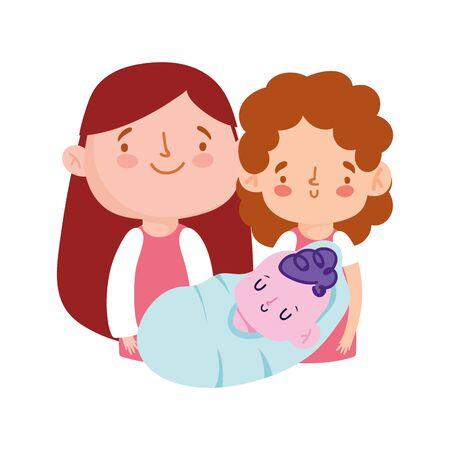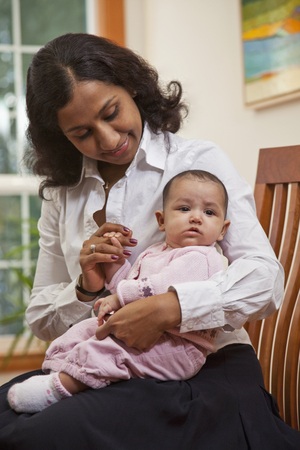Understanding Baby Allergies in the Indian Context
In India, the journey of motherhood often involves a delicate balance between modern medical knowledge and deeply rooted cultural beliefs, especially when it comes to managing baby allergies. Common allergies among Indian infants include food allergies (such as to cow’s milk, eggs, and nuts), dust mites, pollen, and certain medications. Many families also observe skin conditions like eczema, which may be linked to environmental or dietary triggers. Traditionally, Indian mothers have relied on home remedies—like turmeric paste for rashes or herbal concoctions for digestive issues—passed down through generations. While these practices reflect the wisdom of centuries-old traditions, there is sometimes a gap between conventional medicine and cultural perceptions of what causes allergies. For example, many Indian households believe that introducing “hot” or “cold” foods too early can trigger allergic reactions in babies. Similarly, some communities attribute allergies to seasonal changes or even spiritual factors, prompting rituals and prayers alongside medical care. As a result, Indian mothers play a crucial role in navigating both scientific advice from pediatricians and family expectations rooted in tradition. This blend of approaches shapes their unique experiences in recognizing symptoms, seeking treatment, and making daily choices about their child’s health and well-being.
2. The Role of Indian Mothers as Primary Caregivers
In Indian families, mothers are often seen as the cornerstone of childcare, especially when it comes to managing their babys health and wellbeing. Traditionally, Indian mothers shoulder the primary responsibility for identifying, responding to, and managing baby allergies. This role blends both modern medical guidance and cherished family traditions, creating a unique approach to allergy management.
Combining Modern Medicine with Traditional Wisdom
Indian mothers typically balance advice from pediatricians and allergists with home remedies passed down through generations. While they consult doctors for diagnosis and emergency care, they also rely on time-tested family practices such as using turmeric milk or herbal baths to soothe mild symptoms. This dual approach helps them feel empowered in caring for their child while respecting cultural values.
Common Practices Adopted by Indian Mothers
| Approach | Description | Typical Example |
|---|---|---|
| Medical Consultation | Seeking professional advice for diagnosis and treatment plans | Visiting pediatrician for allergy tests, medication prescriptions |
| Home Remedies | Using natural ingredients and traditional methods for symptom relief | Applying coconut oil to rashes; giving ajwain (carom seeds) water for mild digestive allergies |
| Dietary Management | Avoiding known allergens in daily meals based on doctors and elders’ suggestions | Preparing allergen-free recipes like gluten-free rotis or dairy-free kheer |
| Family Support System | Relying on extended family for advice, emotional support, and shared caregiving duties | Grandmothers advising on safe foods; aunts helping during festivals to avoid allergens |
Cultural Sensitivities in Health Decisions
Mothers often navigate expectations from elders who may prioritize traditional cures over medical ones. Open discussions between generations help ensure that children receive the safest possible care without disregarding valuable cultural knowledge. Indian mothers act as mediators, advocating for their child’s best interests while maintaining family harmony.

3. Dietary Management: Navigating Indian Cuisine for Allergic Babies
Managing food allergies in babies presents unique challenges for Indian mothers, especially given the rich and diverse culinary traditions across India. With home-cooked meals forming the heart of daily life, mothers must carefully balance cultural practices with safety concerns. Common allergens like dairy, nuts, wheat, and lentils are often integral to Indian dishes, making it essential for mothers to adapt recipes without compromising on nutrition or taste.
Cultural Challenges in Indian Kitchens
Indian cooking involves a wide array of spices and ingredients, many of which may be potential allergens or cross-contaminants. Family gatherings and festivals further complicate matters, as traditional foods are central to celebrations. Mothers often face social pressure to maintain customs while safeguarding their child’s health. Moreover, explaining dietary restrictions to elders who may not fully understand allergy risks can be stressful.
Practical Tips for Safe Home Cooking
- Ingredient Awareness: Always check the ingredient list and be aware of hidden allergens in spice blends (masalas), sweets (mithai), and packaged snacks.
- Recipe Modifications: Substitute allergenic ingredients with safe alternatives—try coconut milk instead of dairy, or rice flour instead of wheat in rotis and dosas.
- Dedicated Utensils: Use separate cooking utensils and serving dishes for your allergic baby to avoid cross-contamination.
Family Meals and Inclusion
To prevent your child from feeling excluded during family meals or festivals, involve them in the kitchen and prepare allergy-friendly versions of traditional favourites. For example, make nut-free ladoos or gluten-free puris so your child can safely enjoy festive treats alongside everyone else.
Tactful Communication with Extended Family
Educate relatives about the seriousness of allergies in a respectful manner. Share simple guidelines and encourage family members to support your efforts during gatherings. Many Indian mothers find that involving grandparents in meal prep helps increase understanding and cooperation within the household.
By blending cultural sensitivity with practical adaptations, Indian mothers play a crucial role in ensuring their allergic babies remain safe while still participating in cherished family traditions and enjoying the rich flavours of Indian cuisine.
4. Emotional and Social Aspects of Allergy Care
Managing baby allergies can be an emotionally challenging journey for Indian mothers. The sense of responsibility, fear of accidental exposure, and concern for the child’s wellbeing often lead to high emotional stress. Many mothers experience anxiety and guilt, especially when family traditions such as introducing homemade sweets or traditional foods come into conflict with allergy-safe diets.
The Emotional Load on Indian Mothers
| Emotional Challenge | Typical Scenario | Common Coping Mechanism |
|---|---|---|
| Anxiety | Worrying about allergic reactions during festivals or family gatherings | Constant vigilance, carrying emergency medicines |
| Guilt | Feeling responsible if a child reacts to food offered by relatives | Seeking reassurance from doctors or support groups |
| Isolation | Avoiding social functions to prevent exposure | Connecting online with other allergy families |
Dealing with Social Expectations in Indian Culture
Indian society places significant emphasis on hospitality and traditional foods, which can put pressure on mothers to conform even when it may not be safe for their child. Politely declining food offerings or explaining dietary restrictions to elders can be daunting due to deep-rooted respect for authority figures and fear of offending relatives. Some mothers express that they are often misunderstood or judged as being overprotective.
Navigating Common Social Situations
- Festivals: Managing food sharing during Diwali, Holi, or Eid, where allergens like nuts, milk, and wheat are prevalent.
- Family Gatherings: Explaining special diets to grandparents or extended family members who may not be aware of allergy seriousness.
- School Events: Coordinating with teachers about safe snacks for birthday celebrations and picnics.
Drawing Support from Family and Community Networks
Mothers who receive practical help and emotional support from spouses, in-laws, and community groups report lower stress levels. In many Indian families, joint living arrangements mean that educating everyone about allergies is crucial. Community networks—whether local parenting groups, WhatsApp circles, or temple associations—often provide a platform for sharing experiences and tips.
Tips for Building a Support System
- Communicate openly with family members about the child’s needs and risks.
- Join regional parent support groups (online or offline) focused on food allergies.
- Encourage schools to conduct awareness sessions for staff and students.
The collective spirit of Indian families can turn challenges into opportunities for greater understanding and care. With empathy and informed communication, mothers can find strength in their communities while ensuring the best care for their children with allergies.
5. Working with Healthcare Professionals in India
For many Indian mothers navigating the challenges of baby allergies, partnering closely with healthcare professionals is essential for proper diagnosis and ongoing management. Understanding how to build effective relationships with pediatricians, allergists, and community health workers can greatly ease your journey.
Choosing the Right Pediatrician or Allergist
Start by seeking referrals from trusted family members or friends who have dealt with similar concerns. It’s important to find a doctor who not only has experience in allergy management but also understands local dietary habits and common allergens present in Indian households. Don’t hesitate to ask questions about their approach, and ensure they are open to discussing traditional home remedies alongside medical advice.
Open Communication and Regular Follow-ups
Establishing open communication with your child’s healthcare provider is key. Share detailed observations about your baby’s reactions to foods or environmental factors, even if they seem minor. Regular follow-up appointments help in adjusting treatment plans and tracking progress, especially as your baby grows and dietary needs change.
Utilising Government and Community Health Resources
India offers several government-run health programmes like Anganwadi centres and Primary Health Centres (PHCs) that provide support for mothers and infants. These centres often conduct awareness sessions on nutrition and allergy prevention. Take advantage of vaccination drives and health camps organized by local authorities, as these can be valuable sources of information and support.
Building a Support Network
Engage with other mothers in your neighbourhood, mother support groups, or online forums focused on parenting in India. Sharing experiences can help you find practical tips for managing allergies within the context of Indian festivals, school lunches, or family gatherings where traditional foods are served.
Respecting Cultural Sensitivities
Indian families often rely on home remedies or advice from elders. While these traditions are important, always cross-check with your healthcare professional before trying new remedies. This ensures that cultural practices complement rather than conflict with prescribed treatments.
By fostering respectful partnerships with healthcare providers and leveraging community resources, Indian mothers can feel more confident in managing their baby’s allergies safely and effectively.
6. Raising Awareness and Educating Extended Family
For many Indian mothers, the involvement of extended family—especially grandparents, aunts, and uncles—is a cherished part of child-rearing. However, managing baby allergies within this rich cultural context can pose unique challenges. Indian traditions often include sharing meals, using home remedies, and following age-old dietary customs. While these practices hold deep meaning, they may sometimes conflict with the modern understanding of allergy management. Here are some strategies for Indian mothers to educate their extended families while honouring tradition:
Start Conversations with Respect
Approach discussions about your babys allergies respectfully. Acknowledge elders experience and wisdom before explaining that certain foods or practices could be harmful for your child. Use phrases like “Doctor ne bataya hai…” (The doctor has advised…) to add authority and show that your concerns are medically supported.
Share Reliable Information in Local Languages
Sometimes, information about allergies is best received in the familys preferred language, whether it’s Hindi, Tamil, Bengali, or another regional tongue. Share pamphlets or videos from trusted medical sources that are available in local languages. This helps bridge the gap between modern science and tradition.
Involve Grandparents in Allergy-Safe Cooking
Invite grandparents to participate in preparing allergy-safe versions of traditional dishes. Teach them how to read ingredient labels and identify safe substitutes for common allergens like dairy, nuts, or wheat. This not only ensures safety but also allows cherished recipes to be enjoyed by everyone.
Set Clear Guidelines for Caregivers
Clearly communicate what foods or products must be avoided, and keep an updated list visible in the kitchen or dining area. Explain symptoms of allergic reactions and demonstrate how to respond, including when to use emergency medication if prescribed.
Encourage Open Dialogue
Create an environment where relatives feel comfortable asking questions about allergies. Be patient with repeated clarifications and remember that change takes time—especially when it comes to deeply rooted traditions.
Balancing Tradition with Safety
Indian mothers play a vital role in blending respect for heritage with the necessity of protecting their children’s health. By fostering awareness and education among extended family members in a compassionate way, you help ensure that your baby is both safe and surrounded by loving support—a true reflection of Indian family values.


